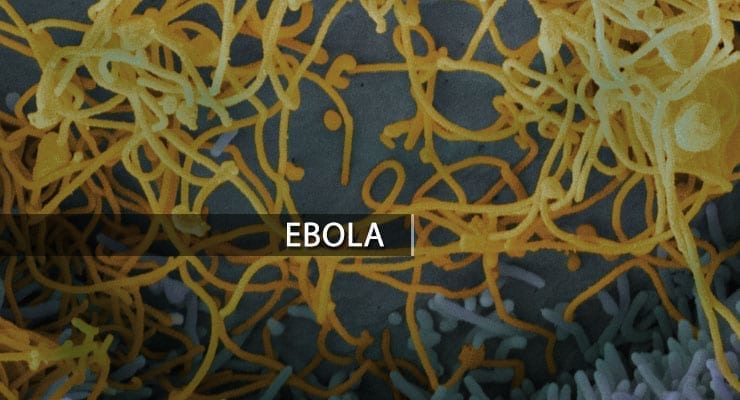A collaborative team from The University of Texas Medical Branch at Galveston, Vanderbilt University, The Scripps Research Institute and Integral Molecular Inc. have learned that antibodies in the blood of people who have survived a strain of the Ebola virus can kill various types of Ebola.
The findings are significant because it helps researchers further understand the immune response to a virus such as Ebola and could lead to treatments for Ebola as well as other related viruses.
The study involved using blood samples from people who had survived the Ebola Bundibugyo strain.
See also: Medicago to Develop Sudan Strain Ebola Antibodies
Although several mouse antibody-based treatments have provided protection against Ebola Zaire in animal models, there are no available therapeutics based on antibodies from human survivors and no universal treatments against multiple filoviruses, including Ebola Sudan and Ebola Bundibugyo.
In the study, researchers used the blood of seven people who survived Ebola Bundibugyo virus infection during the 2007 outbreak in Uganda to isolate a large number of B cells that produce antibodies, which are the small protein molecules capable of inactivating the virus.
“The work on antibodies isolated from survivors of filovirus infections, including Marburg and Ebola, was started by James Crowe’s laboratory at Vanderbilt University together with our laboratory about 3 years ago,” said virologist Alex Bukreyev, professor at UTMB and co-corresponding author. “In this study, we isolated a remarkably diverse array of virus-specific antibodies, which appeared to bind to various parts of the envelope protein of the virus. Some of the antibodies neutralized not only Ebola Bundibugyo virus, but also Ebola Zaire and Sudan viruses.”
“The quality of these naturally occurring human antibodies as biological drugs to treat the virus infection is remarkable, and we are doubly encouraged because they recognize multiple species of Ebola,” said immunologist James Crowe, Director of the Vanderbilt Vaccine Center.
See also: DoD Continues Mobile Laboratory Support in West Africa
A portion of the isolated antibodies effectively protected mice and guinea pigs against a lethal Ebola Zaire infection.
“These data provide the basis for understanding the immune response to filovirus infections in humans,” said Bukreyev. “Our results provide a roadmap to developing a single antibody-based treatment effective against not only infections caused by Ebola Zaire virus, but also caused by related filoviruses.”
The study was supported by three grants from the National Institute of Allergy and Infectious Diseases (NIAID) and by a Defense Threat Reduction Agency (DTRA) award.
Read more: Cross-Reactive and Potent Neutralizing Antibody Responses in Human Survivors of Natural Ebolavirus Infection.


